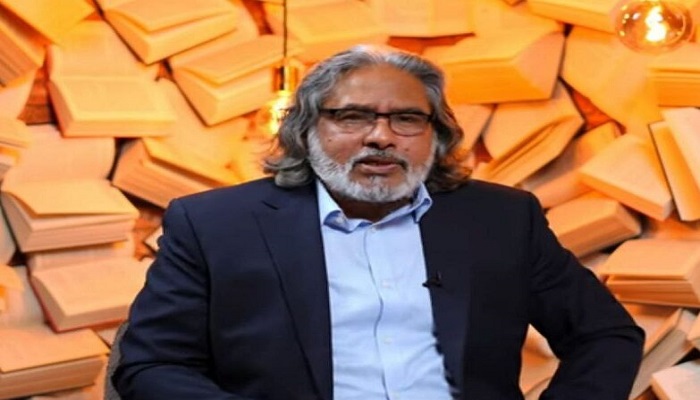PNN – Imam Khomeini (RA) emphasized the formation of a united Muslim front to confront the challenges facing the Islamic Ummah, and he always considered a return to Islam and unity a prerequisite for saving Palestine and preventing Zionist expansionist plans.
Imam Khomeini (RA) always considered a return to Islam and unity as a prerequisite for saving Palestine and preventing Zionist expansionist plans. Therefore, while he emphasized that Israel’s main goal was the destruction of Islam, he repeatedly called on Muslims to put aside all their differences, including religious ones.
He encouraged all Muslims to help the Palestinians. Imam Khomeini (RA) considered it shameful that a small number of Zionists ruled over more than a billion Muslims in the world, and said, “How is it possible for Israel, with such a small number of people, to dominate these countries that have everything and all kinds of powers in this way?” Why should it be so? Isn’t it because nations are divided and stand apart from their governments and governments are not united, that a population of more than a billion Muslims, with all the resources at their disposal, sit indifferent while Israel commits these crimes in Lebanon and Palestine?
According to Imam Khomeini (RA), the great leader of the Islamic Revolution, if all Muslims unite and each pour a bucket of water on Israel, Israel will be swept away. He said that what amazes me is that all Muslim governments and nations know what the problem is, they know that foreigners are trying to divide them, they see that this division will weaken and destroy them, they see how the fragile Israeli regime stands against Muslims, and they know that if they unite and each pours a bucket of water on Israel, it will drown Israel, but they are still powerless against it.
Read more:
Reflection of Imam Khomeini’s will in Italian media; an inspiring document for oppressed nations
Quds Day and the Palestinian issue
One of Ayatollah Khomeini’s most prominent actions for Muslim unity was the designation of “Quds Day” (Yom al-Quds). This day, which coincides with the last Friday of Ramadan each year, was created to express solidarity with the Palestinian people and oppose Israel’s occupation and domination of Jerusalem (known in Arabic as al-Quds). For Imam Khomeini, the struggle for Palestine was not just a national or Arab issue, but a fundamental Islamic issue. He called on Muslims of all faiths to unite in defense of the Palestinian people and the sanctity of Jerusalem as one of the holiest sites in Islam.
Imam Khomeini (RA) thus emphasized the need for Muslim unity against a common enemy – the Zionist forces. The Palestinian issue transcended sectarian boundaries, and Imam Khomeini’s call for global Muslim solidarity against Zionist aggression resonated widely among both Shiite and Sunni communities.
His stance on Palestine solidified his position as a leader who worked for the unity of the Islamic Ummah and brought Muslims together around an issue that was close to their hearts.
Unity Week, the lasting legacy of Imam Khomeini
Another important work of Imam Khomeini (RA) in strengthening unity was supporting the idea of introducing Eid Milad-un-Nabi (the birthday of the Prophet of Islam) as “Unity Week”. Traditionally, Shia and Sunni communities celebrate the Prophet’s birthday on different days; Sunnis on the 12th of Rabi’ al-Awwal and Shiites on the 17th of the month. Ayatollah Khomeini saw this as an opportunity to bridge sectarian divides and suggested that rather than focusing on differences, Muslims should celebrate the entire week as an opportunity for unity and brotherhood, emphasizing their shared love and respect for the Prophet Muhammad.
Unity Week became a platform for Shia and Sunnis to come together to discuss and renew their commitment to the core principles of Islam. Imam Khomeini’s efforts in creating this tradition have had a lasting impact, as Unity Week is still celebrated in Iran and other parts of the Muslim world, reminding us of the importance of cooperation and mutual respect between Shia and Sunnis.
The Imam’s legacy of promoting Shia-Sunni unity still resonates today. His efforts to bridge the gap between the two Muslim groups stemmed from his understanding that the division between Shia and Sunni Muslims was a source of weakness in the Islamic world, which was being exploited by external forces. The Imam believed that a united Muslim front was necessary to confront the challenges facing the Ummah, including colonialism, imperialism, Zionism, and Western interference.
His vision of unity was not to erase the doctrinal differences between Shia and Sunni, but to embrace diversity within Islam and focus on the common values that all Muslims share—faith in God, love for the Prophet Muhammad, and a commitment to justice and morality.
By promoting initiatives such as Quds Day and Unity Week, and by bringing Sunni scholars and figures into Iran’s political framework, he paved the way for a more inclusive and united Islamic society.

